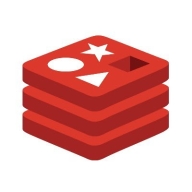

Find out in this report how the two Database as a Service (DBaaS) solutions compare in terms of features, pricing, service and support, easy of deployment, and ROI.


Cloud Spanner is the first and only relational database service that is both strongly consistent and horizontally scalable. With Cloud Spanner you enjoy all the traditional benefits of a relational database: ACID transactions, relational schemas (and schema changes without downtime), SQL queries, high performance, and high availability. But unlike any other relational database service, Cloud Spanner scales horizontally, to hundreds or thousands of servers, so it can handle the highest of transactional workloads. With automatic scaling, synchronous data replication, and node redundancy, Cloud Spanner delivers up to 99.999% (five 9s) of availability for your mission critical applications. In fact, Google’s internal Spanner service has been handling millions of queries per second from many Google services for years.
Redis is a high-performance, scalable, and easy-to-use caching solution that improves application performance. It is also used for session management, real-time analytics, and as a message broker.
Redis's valuable features include its ability to handle large amounts of data quickly, its simplicity and straightforward setup process, and its support for various data structures, providing flexibility for different use cases.
We monitor all Database as a Service (DBaaS) reviews to prevent fraudulent reviews and keep review quality high. We do not post reviews by company employees or direct competitors. We validate each review for authenticity via cross-reference with LinkedIn, and personal follow-up with the reviewer when necessary.